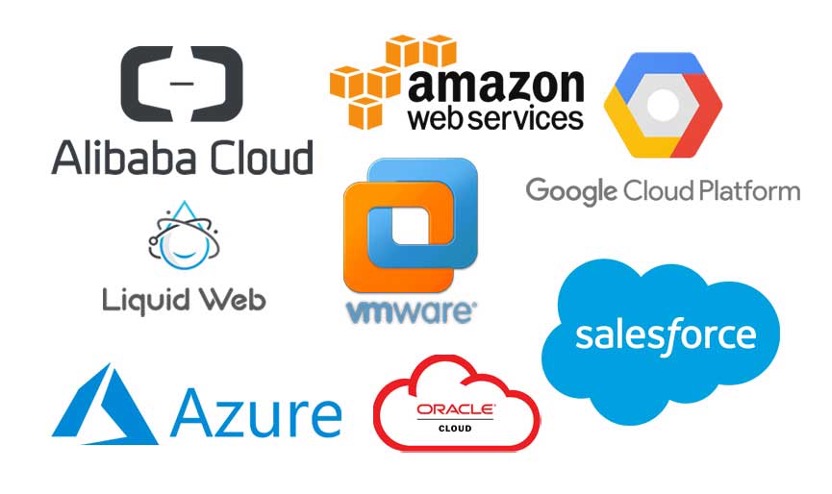Cloud computing is transforming the way businesses operate, making it one of the most exciting and high-demand fields today. If you’ve ever wondered how apps, websites, and services run seamlessly across the internet, a Cloud Architect is the mastermind behind it. This guide will take you through the key steps to becoming a successful Cloud Architect, even if you’re just starting out.
1. Understand the Role of a Cloud Architect

Think of a Cloud Architect as the bridge between business needs and technical solutions. They design cloud-based infrastructures, ensure security, optimize performance, and keep costs in check. Their job is to work with platforms like AWS, Azure, and Google Cloud to build scalable, reliable, and efficient cloud environments.
2. Get the Right Educational Background
While there’s no single path to becoming a Cloud Architect, having a solid educational foundation can help:
- Bachelor’s Degree: A degree in Computer Science, Information Technology, or a related field is a great starting point.
- Master’s Degree (Optional but Helpful): If you want to dive deeper, a Master’s in Cloud Computing or IT Management can be beneficial.
- Self-Learning & Online Courses: Many Cloud Architects are self-taught, thanks to platforms like Coursera, Udemy, and AWS Training.
3. Build a Strong IT and Networking Foundation
Before you jump into the cloud, it’s essential to understand the core IT concepts:
- Networking: Learn about IP addresses, DNS, VPNs, and firewalls.
- System Administration: Get comfortable with Linux and Windows servers.
- Programming & Scripting: Python, Java, or PowerShell can come in handy when automating cloud tasks.
4. Learn Cloud Computing Basics

Cloud computing isn’t just about moving data to the internet—it’s a complete ecosystem. Start by understanding:
- Different Cloud Models: Public, Private, and Hybrid Cloud.
- Service Models: IaaS (Infrastructure as a Service), PaaS (Platform as a Service), and SaaS (Software as a Service).
- Cloud Storage, Security, and Cost Management.
5. Get Hands-On Experience with Cloud Platforms

Theory is great, but hands-on experience is what sets you apart. Start experimenting with:
- Amazon Web Services (AWS)
- Microsoft Azure
- Google Cloud Platform (GCP)
Most providers offer free-tier accounts where you can practice deploying virtual machines, databases, and security configurations.
6. Earn Cloud Certifications
Certifications can boost your resume and prove your expertise. Consider these:
- AWS Certified Solutions Architect
- Microsoft Certified: Azure Solutions Architect Expert
- Google Professional Cloud Architect
- Certified Kubernetes Administrator (CKA) (for containerization)
7. Learn Cloud Security & Compliance
Security is a massive part of cloud architecture. You’ll need to understand:
- Identity and Access Management (IAM)
- Encryption & Data Protection
- Compliance Standards like GDPR, HIPAA, and ISO 27001
8. Master DevOps and Automation
Cloud Architects often work with DevOps teams, so learning automation is crucial:
- Infrastructure as Code (IaC): Terraform and CloudFormation.
- CI/CD Pipelines: Automating deployments with Jenkins or GitHub Actions.
- Monitoring & Logging: AWS CloudWatch, Prometheus, and Grafana.
9. Gain Real-World Experience

Employers value hands-on experience more than anything. Try:
- Working on cloud migration projects or hybrid cloud solutions.
- Contributing to open-source cloud projects.
- Seeking internships or junior roles like Cloud Engineer, DevOps Engineer, or System Administrator.
10. Build a Strong Professional Network & Stay Updated
The cloud industry moves fast, so staying connected is key:
- Join AWS User Groups, Azure DevOps Community, and Google Cloud Community.
- Attend conferences, meetups, and webinars.
- Follow cloud blogs, podcasts, and industry leaders on LinkedIn.
Become a Cloud Architect
Becoming a Cloud Architect is a rewarding journey that combines technical expertise, creativity, and problem-solving. By following these steps, you’ll be well on your way to building cloud solutions that power the future. The best part? You don’t need to be an expert from day one—just stay curious, keep learning, and take it one step at a time!
Read More | How to Become a Product Marketing Manager
Read More | AI Engineer: How to Build a Successful Career in AI








